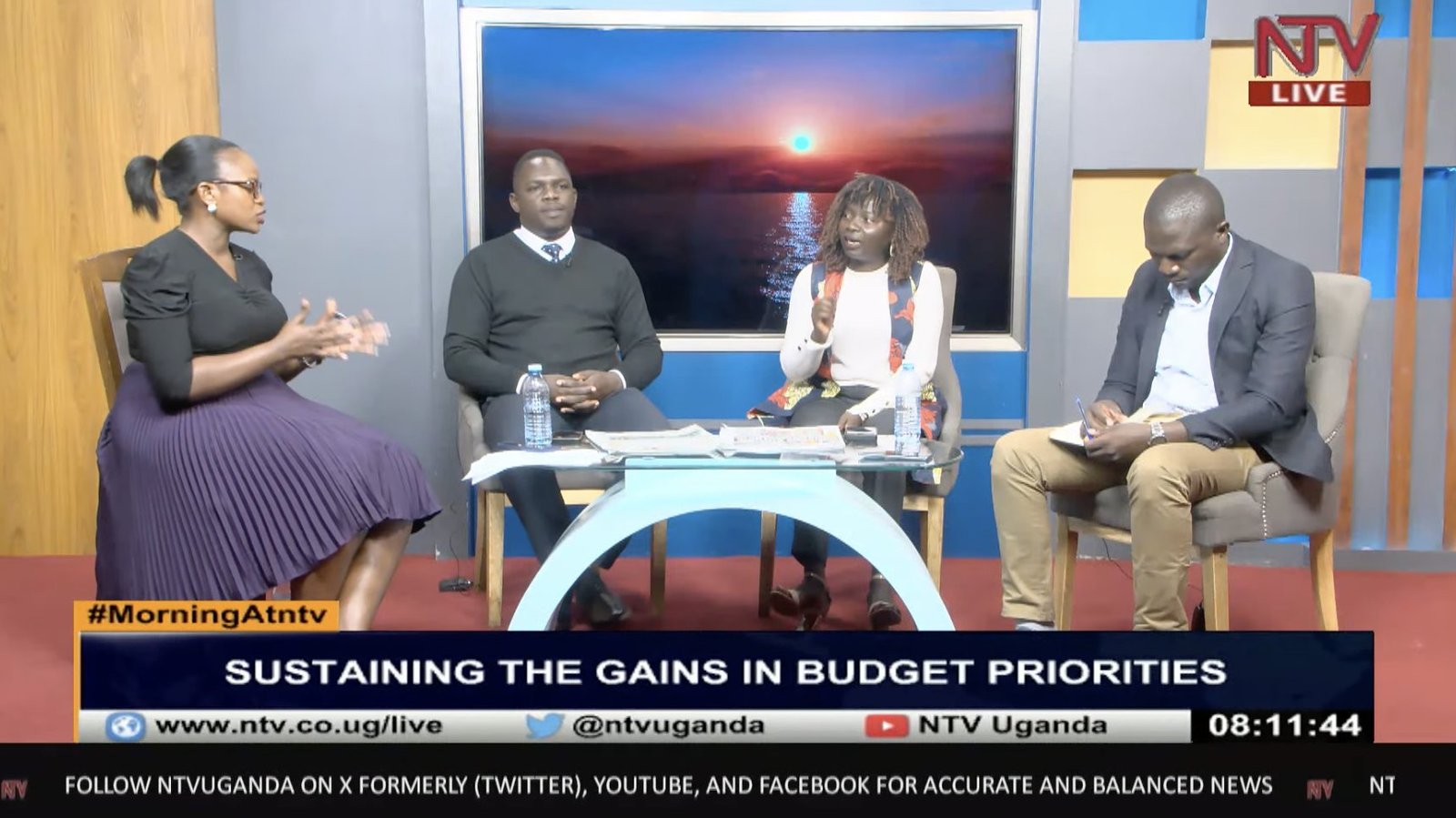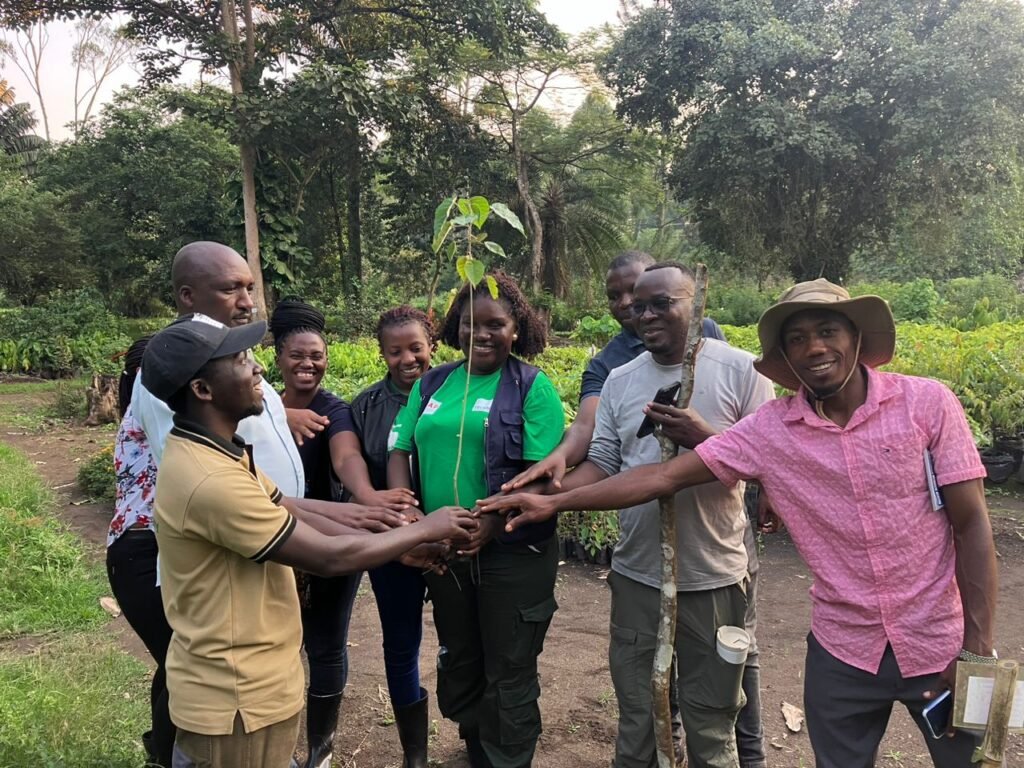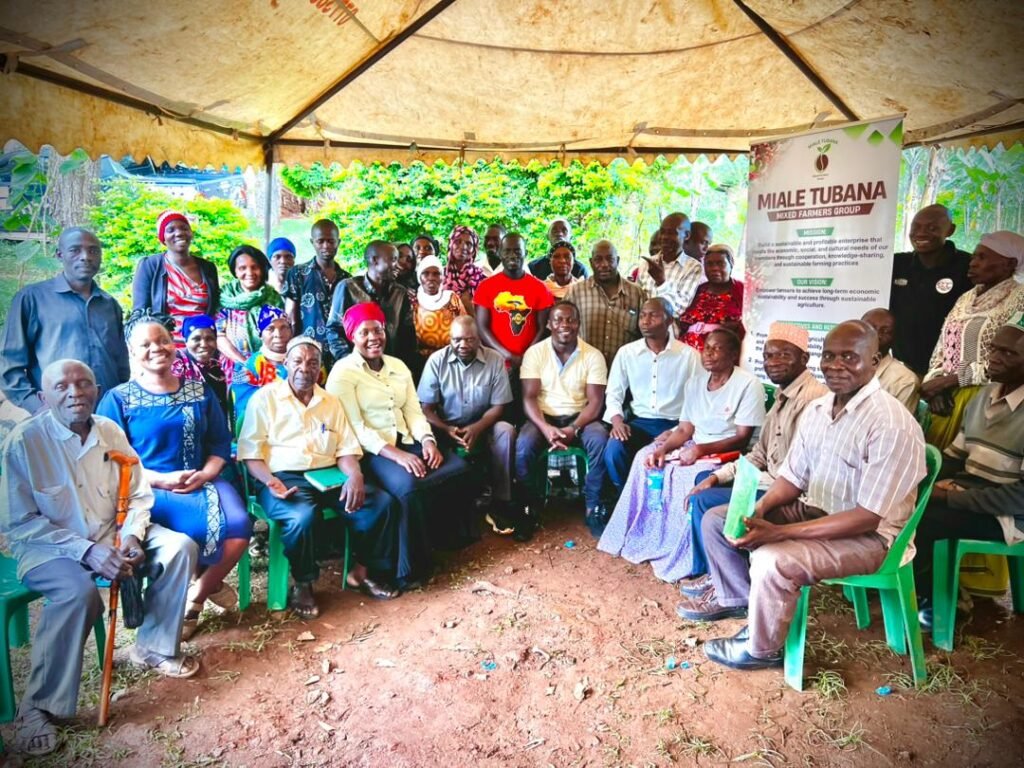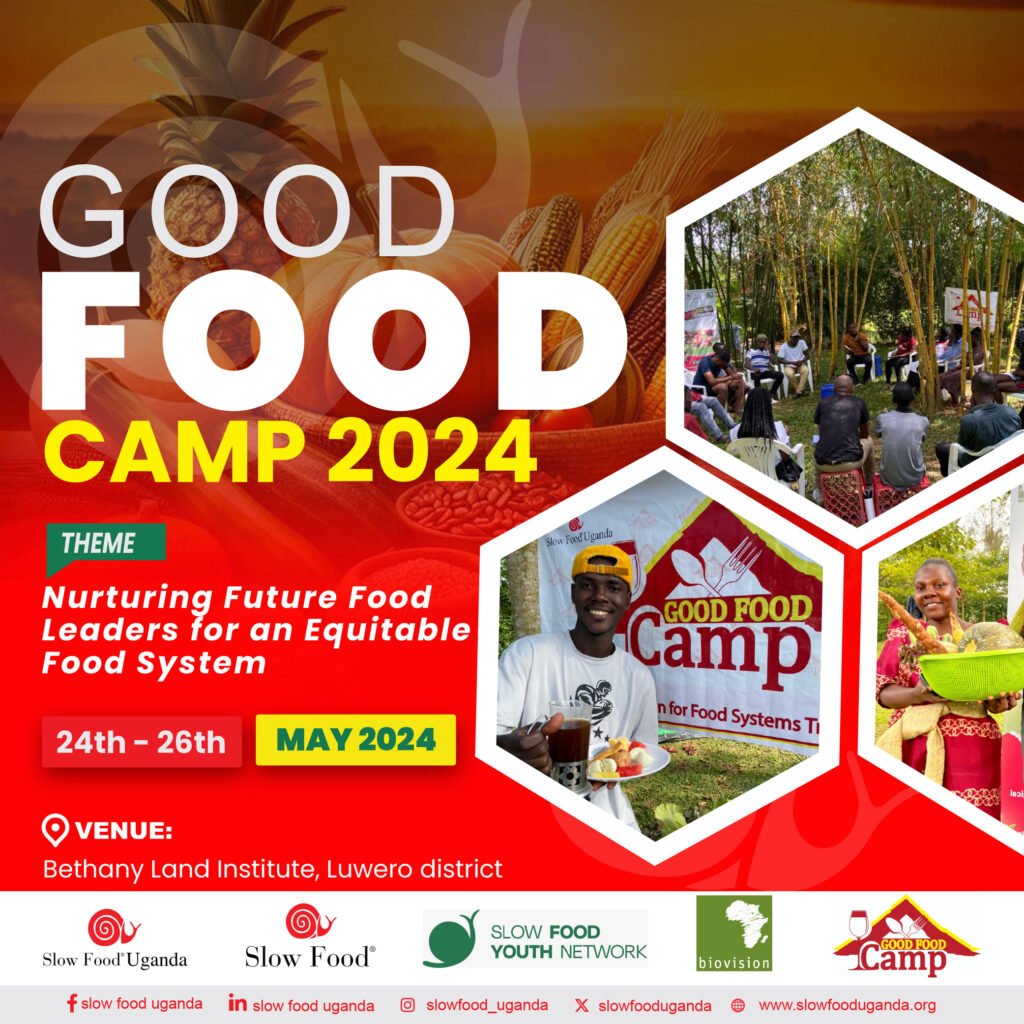Slow Food Uganda, in collaboration with Civile Society Budget Advocacy Group (CSBAG) and Participatory Ecological Land Use Management (PELUM) Uganda, recently engaged in a media session at NTV Uganda to address the budget priorities for the Financial year 2024/25. The focus of the discussion was on inclusive economic growth and improved service delivery, particularly within the agricultural sector. John Kiwagalo, representing Slow Food Uganda, emphasized the pivotal role of agro-industrialization in driving economic transformation and highlighted key priorities and challenges for the upcoming fiscal year.
John underscored the challenges faced by the agricultural sector, including a significant budget cut of approximately 170 billion, despite its status as an externally financed core sector. He expressed concerns about the disproportionate allocation of funds, with a substantial portion remaining centralized, leading to limited expenditure at the grassroots level. Additionally, he highlighted the critical shortage of extension workers, with an alarming ratio of 1:1800, far exceeding the standard of 1:500 for effective support to farmer households. The inadequacy of facilitation for extension workers further compounded the challenges, as they are tasked with managing significantly more responsibilities than feasible without adequate support.
Furthermore, John emphasized the unfulfilled commitments outlined in the Malabo and Maputo declarations, particularly the failure to meet the 10% allocation target for the agricultural sector, with the current allocation standing at a mere 3%. He stressed the urgent need to enhance post-harvest handling and value addition, essential components for sustainable agricultural development. He called for targeted support and incentives to empower smallholder farmers, enabling them to fit in the agenda of agro-industrialization and contribute to the transformation of the agricultural landscape.
The engagement highlighted the critical need for comprehensive and inclusive budgetary allocations to address the pressing challenges within the agricultural sector. The insights shared by Slow Food Uganda, in collaboration with CSBAG and PELUM Uganda, serve as a call to action for policymakers and stakeholders to prioritize sustainable and equitable budgetary provisions that will drive inclusive economic growth and foster the transformation of the agricultural sector.







